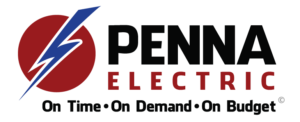Commercial EV Charger Installation: Cost & Factors
There are many reasons why businesses should consider EV charger installation, considering that more and more drivers today go electric. Therefore, smart electric vehicle chargers have turned into a must-have amenity for businesses, workplaces or residential complexes.
However beneficial this investment is for your business, it’s also an important one with considerable costs. This is why it’s important to maximize your EV infrastructure investment as well as to provide your customers or clients with best-in-class EV charging access. Cost is definitely an important factor, but most of the smart chargers qualify for state or local incentives. They also bring additional value to the property.
One of the often overlooked benefits of EV charger installation is that it makes PEVs more convenient. It’s true that most electric car owners are used to charging their vehicles at home, usually overnight, but the increase in public charging and workplace charging can boost the daily useful range of electric vehicles and make the market more comfortable.
Generally, public charging uses DC fast chargers or Level 2 charging stations. Level 1 and Level 2 chargers are usually installed in areas where EV owners are highly concentrated or parked for longer periods of time, such as shopping centers, hotels or other businesses. Below, you can find out more about the factors that impact the cost of such investment and what to expect.
The Cost of a Commercial EV Charger Installation
As mentioned above, many businesses should consider an EV charger installation, as commercial charging stations are an ideal solution for:
- Office parks
- Hotels, resorts & restaurants
- Event venues
- Shopping malls
- University campuses
- Hospitals
- Apartments & condominiums
- Parking garages
- Electric vehicle fleets
The type of business or commercial property you own will impact the cost of the investment. Not only that, but you also have different power levels, and the type of charging stations you choose will also have an impact on the price. Commercial EV charging solutions are available in three power levels: 32A, 40A, and 48A.
Another factor that influences the price of the installation is the particularities of your electrical needs, such as the distance to the circuit panel or how the station is mounted. The range is quite big, the cost varying anywhere between $1,000 and $10,000 per station, or even more for DC fast chargers. However, as mentioned before, there are many incentives for a commercial EV charger installation, from utility companies to city and even state rebates.
You can always check for what’s available in your area, but California has one of the best incentive programs. If you are eligible, all you need to do is file the appropriate materials with the local or state organization offering the rebate after your purchase. Some areas offer instant rebates, so make sure to check the database.
It’s important to note, however, that the cost of the investment is not reduced to the cost of installation. The overall investment includes purchase, installation and management of non-residential EVSE, which stands for electric vehicle supply equipment. They type of charging station influences the price as well:
- Level 1 single port EVSE unit purchase price ranges from $300 to $1,500, while installation can go up to $3,000;
- Level 2 single port EVSE unit purchase price ranges from $400 to $6,500, while installation can vary from $1,600 to $12,700;
- DC fast charger unit purchase price ranges from $10,000 to $40,000, while installation can be anywhere between $4,000 and $51,000.
The energy department has put together a report that shows example cost ranges for different types and applications of EVSE. It also shows you the factors that can influence whether a particular EVSE unit or installation will fall on the lower or higher end of that range.
In order to find the best EVSE solution for your business, you need to evaluate needs and opportunities, then strategically determine what’s the optimal number of units you need, what type of features, and where’s the best location.
Factors Impacting a Commercial Installation
We’ve gone over the broad factors that can influence the overall cost of your investment, such as the type of charging stations, the location and the number of units. But there are also secondary factors that can impact your EV charger installation, as the stations have multiple equipment to consider.
Overall, EVSE must include all the equipment needed to deliver electricity from a main source to the PEV battery. The EVSE communicates with the electric vehicle to make sure that the plug is connected securely before starting the flow of electricity. For Level 1 and Level 2 chargers, which provide AC current, the charger that charges the battery is built directly into the car. For DC fast chargers, which provide direct current, the charger is off-board the vehicle, located in the charger.
The units, as mentioned above, come in different amperage ratings, which is correlated to the charging power. All of this is important because it will dictate the type of stations to invest in, as well as the installation process, both of which have an impact on cost. This cost is associated not just with the installation, but also the operation of the EVSE, which is influenced by:
- site location;
- features;
- available electrical capacity.
In addition to the purchase price, the cost of owning and operating EVSE will include aspects such as:
- EVSE unit hardware cost, which may include optional EVSE equipment such as a RFID card reader;
- new electrical service or upgrades (e.g., transformers);
- meeting Americans with Disabilities Act (ADA) requirements;
- traffic protection;
- signage;
- lighting;
- permitting and inspection;
- additional capital cost, which may include hardware warranty, repair warranty and more;
- electricity consumption and demand charges;
- billing costs;
- management time;
- repairs.
Although this is a serious investment for any business, acquiring and installing EV charging stations can bring about many benefits to your business, from sustainability to attracting more customers or clients. There are also multiple ways to offset the cost, from incentives and rebates to grants and loans.





